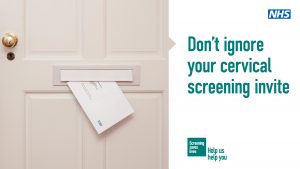
Latest News:
Wirral Carers Alliance – In-person Carers Forum Tuesday 15th July 2025 Measles cases are rising! Coils and Contraceptive Implants (LARC Clinic)
Cancer Screening
Moreton and Meols PCN holds a strong passion for tackling the patient barriers that stop patients accessing their GP for changes or concerns in their bodies that do not feel right and have worries it may be cancer.
Screening and early diagnosis
Cancer screening programmes offered by the NHS can help diagnose cancer or identify risk factors earlier to improve the likelihood of treatment being successful. There are currently three national cancer screening programmes offered in England
- Bowel Screening
- Cervical Screening
- Breast Screening
Bowel Screening
Over the last 40 years the survival rate of bowel cancer has more than doubled. 90% of bowel cancer cases can be treated successfully if they are diagnosed early.
As part of the NHS programme for Bowel Cancer Screening both men and women between the ages of 60-74 are sent a home testing kit every two years in the post. The kit requires collection of a small sample of poo to be checked for small amounts of blood that could potentially be caused by cancer.
The current kit used is the Faecal Immunochemcial Test (FIT). The kit only requires one sample and is the more accurate than previous kits provided at detecting small signs of blood hidden in poo samples.
Please ensure your GP practice has your correct address for your kit to be posted to the correct address. For patients with worries or concerns about a family history of bowel cancer or are displaying any symptoms please seek help and advice from your GP.
For more information about NHS Bowel Cancer Screening and FIT testing kits click here
Cervical Screening
NHS England offer a Cervical Screening Programme to people with a cervix between the ages of 25 to 64. A routine screening is offered to those between 25 and 49 every three years and every five years for those aged 50-64. Some individuals may be recalled earlier than this usual routine interval depending on the results of the previous screening.
Samples taken at the time of the cervical screening appointment are tested for high risk Human Paillomavirus (HPV). This Virus causes almost all types of cervical cancers. If a sample tests positive for HPV, further analysis using Liquid Based Cytology is used to detect call abnormalities. Results for screening will usually be received by letter usually around the two week mark, the letter will explain what happens next.
Cervical screening does not test for cancer, it is instead a test to help prevent cancer.
You can find out more information about cervical screening here
Alternatively further information can be retrieved via the links below

Breast Screening
1 in 8 women in the UK are diagnosed with breast cancer within their lifetime. Early detection means treatment is more successful and improves chances of a good recovery.
Screening for breast cancer is done using a X-ray known as a Mammogram used to spot cancers when they are too small to feel or see. Screening for breast cancer is currently offered to women in England between the ages of 50 and 71.
Those aged younger than 50 may be offered breast screening before the eligible age if they have a high risk of developing breast cancer.
After the age of 71 you will stop receiving screening invitations but you can still have a screening done by contacting your local screening unit to arrange.
more information about breast cancer screening can be found here








